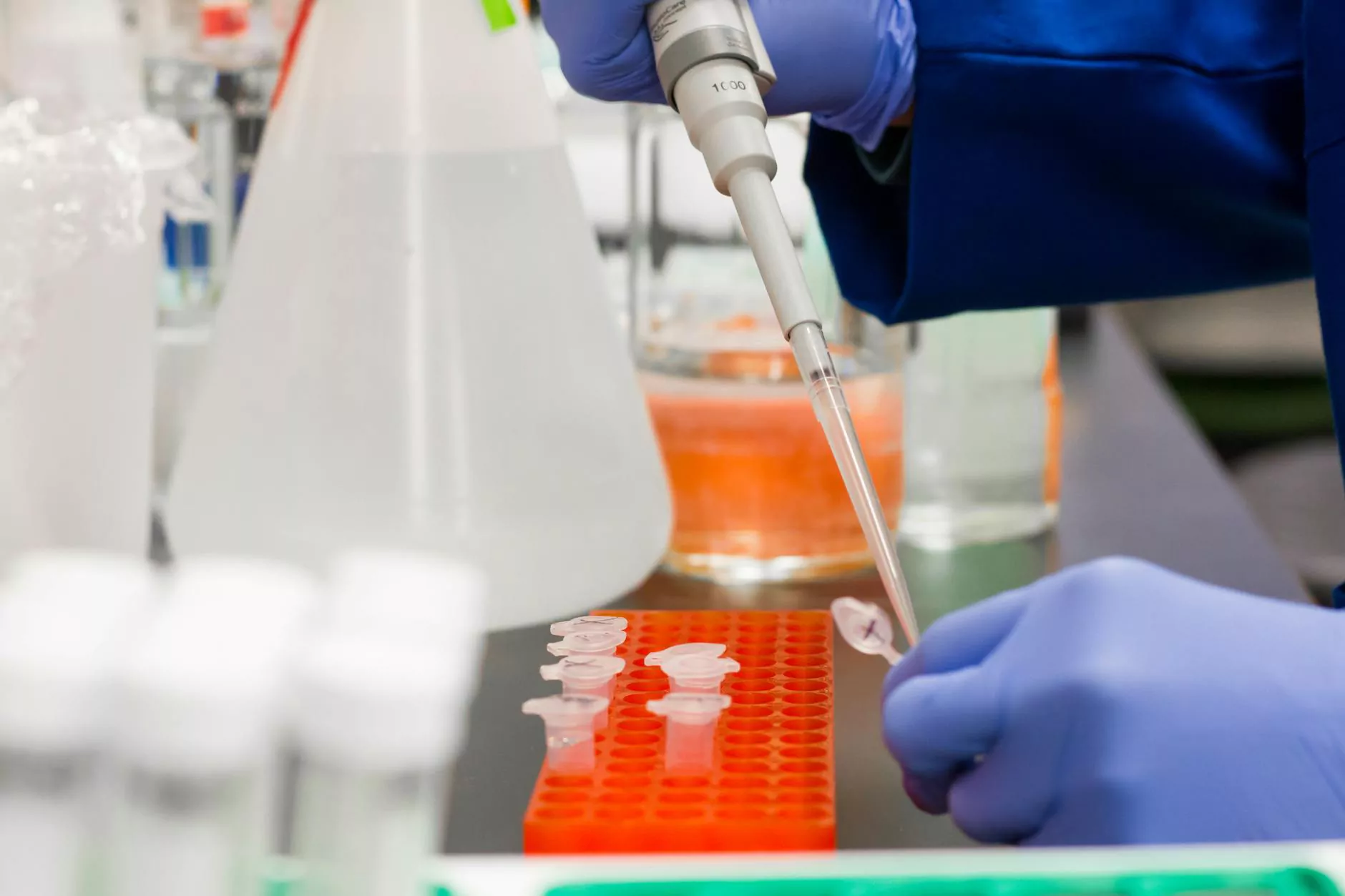Unlocking the Future: How a Biotech Accelerator Program Can Transform Your Business

The biotech industry stands at the forefront of innovation, driven by advancements in health, medicine, and laboratory testing. Many startups in this field face significant challenges, including funding, mentorship, and access to critical resources. This is where a biotech accelerator program plays a pivotal role in providing the support necessary for these businesses to thrive.
What is a Biotech Accelerator Program?
A biotech accelerator program is an initiative designed to support early-stage biotechnology companies by providing them with essential resources. These programs typically offer a combination of mentoring, funding, training, and access to a network of industry professionals, aimed at accelerating the growth and development of innovative biotech solutions.
Key Benefits of Participating in a Biotech Accelerator Program
Joining a biotech accelerator program can unlock numerous opportunities for startups in the biotech sector. Here are some of the key benefits to highlight:
- Access to Funding: Many programs provide seed funding or facilitate connections with venture capitalists who are interested in investing in biotechnology innovations.
- Expert Mentorship: Participants often receive guidance from experienced professionals in the biotech field, helping refine their business models and strategies.
- Networking Opportunities: Accelerator programs connect startups with a diverse network of entrepreneurs, investors, researchers, and industry leaders, fostering collaboration and partnership opportunities.
- Business Development Training: Workshops and training sessions on topics such as market analysis, regulatory compliance, and business strategy offer crucial insights that can pave the way for future success.
- Access to Research Facilities: Accelerator programs often include partnerships with labs or research institutions that provide startups with access to state-of-the-art equipment and resources.
- Increased Visibility: Participating in an accelerator program can enhance a startup's credibility, making it easier to attract attention from media, investors, and potential customers.
The Structure of a Typical Biotech Accelerator Program
Most biotech accelerator programs run for a specific duration, usually ranging from three to six months. During this period, participating startups engage in various activities designed to propel them forward. A typical structure might include:
- Application Process: Startups typically go through a competitive selection process, where only the most promising ideas are accepted into the program.
- Orientation and Initial Training: Accepted startups receive orientation that outlines the program's objectives, resources, and expectations, followed by initial training sessions.
- Mentorship Matching: Each startup is paired with mentors who have relevant experience and can provide tailored guidance.
- Regular Check-Ins: Weekly or bi-weekly meetings with mentors and program coordinators help ensure steady progress.
- Final Pitch Event: At the end of the program, participants often present their progress to a group of investors and industry experts, showcasing their innovations and business plans.
Success Stories: Transformative Impacts of Biotech Accelerator Programs
Many startups have leveraged biotech accelerator programs to launch revolutionary products and services that address critical healthcare needs. For instance:
- StartUp Bio: A company focused on creating targeted cancer therapies began as an idea in an accelerator program and has since raised millions in funding, leading to promising clinical trials.
- HealthGen: This biotech firm developed a groundbreaking gene editing technology. Through a prominent accelerator, they gained essential industry knowledge and funding, steering them towards successful partnerships with major pharmaceutical companies.
- LabLink: By participating in an accelerator, LabLink was able to refine its laboratory testing solutions, making them more effective and market-ready, ultimately entering into contracts with leading healthcare providers.
Choosing the Right Biotech Accelerator Program for Your Startup
Selecting the right accelerator program is crucial for maximizing the benefits. Here are some factors to consider when evaluating your options:
- Focus Area: Ensure the program aligns with your specific field of biotechnology, whether it be pharmaceuticals, diagnostics, or medical devices.
- Networking Opportunities: Look for programs that have strong connections to the industry, investors, and research institutions.
- Expertise of Mentors: Research the backgrounds of potential mentors. Their experience can greatly influence your startup's trajectory.
- Success Rate: Investigate the program's track record of helping startups secure funding and achieve successful market entry.
- Program Duration and Intensity: Assess how much time you can commit and find a program that matches your availability and expectations.
The Future of Biotech Accelerators
The landscape of entrepreneurship in biotechnology is evolving rapidly, and biotech accelerator programs are at the cutting edge of this transformation. With advancements in technology and a growing emphasis on targeted therapies and personalized medicine, these programs will likely expand their offerings to include:
- Specialized Tracks: Creating subprograms focused on specific areas such as AI in healthcare, regenerative medicine, and digital health solutions.
- International Collaboration: Facilitating cross-border partnerships to cultivate a more diverse pool of ideas and innovations.
- Access to Data Analytics: Providing startups with tools to analyze trends and customer feedback, enhancing product development and marketing strategies.
Conclusion
In conclusion, a biotech accelerator program offers invaluable resources for startups aiming to innovate and succeed within the competitive landscape of biotechnology. By providing funding, mentorship, access to networks, and specialized training, these programs facilitate the transformation of groundbreaking ideas into market-ready solutions. As the biotechnology sector continues to grow and evolve, the role of accelerator programs will be critical in shaping the future of health and medicine, making them an essential consideration for new entrepreneurs in the field.
For more information about how to engage with a biotech accelerator program, visit bioinc.org to explore available opportunities and resources designed to help your biotechnology startup reach new heights.









